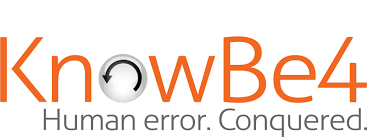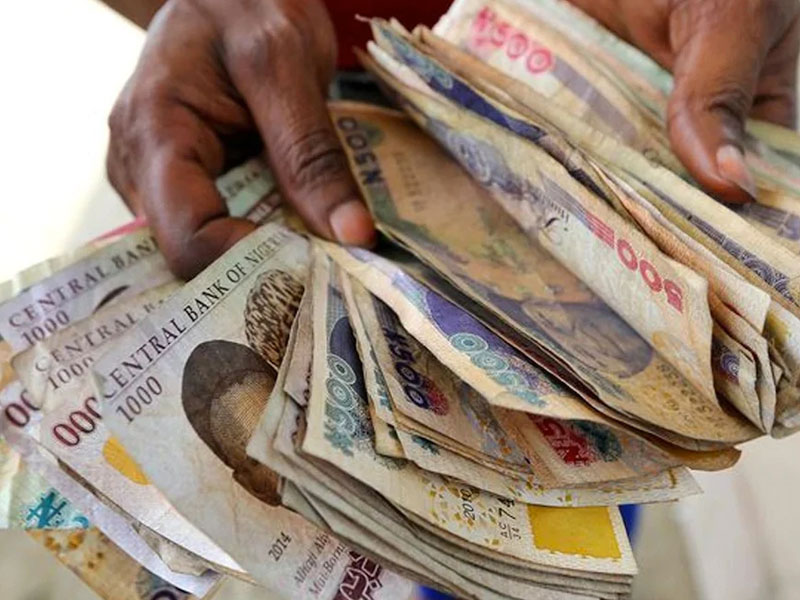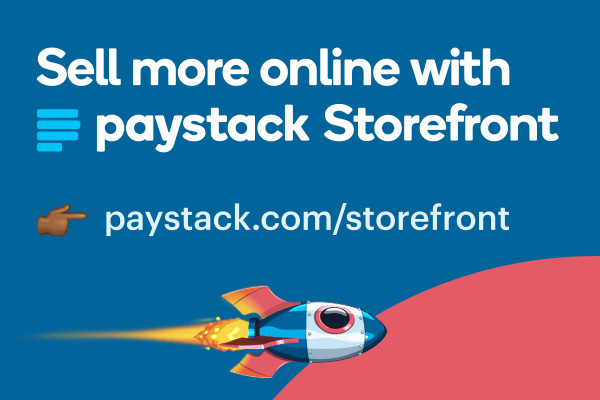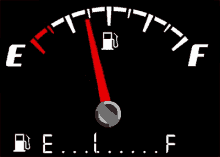
IN PARTNERSHIP WITH



Good morning ☀️ ️
Clubhouse is adding a new feature.
Soon, being in a Clubhouse room will be more realistic as the platform intends to roll out spatial audio – a feature that allows listeners hear the people around them in 3D, and makes the Clubhouse experience more lifelike and human.
In today’s edition:
- Nigeria releases guidelines for new digital currency
- Kenya is bringing wildebeests to TikTok
- Sabi onboards 150,000 businesses onto its platform
- Algeria has finally depleted its leaded petrol reserves
NIGERIA RELEASES GUIDELINES FOR NEW DIGITAL CURRENCY

Nigeria’s apex bank, the Central Bank of Nigeria, has released new guidelines on how e-Naira, a state-backed digital currency, will be regulated, designed, and issued.
In July, months after banning cryptocurrency trading, the bank, through its governor, Godwin Emefiele, announced plans to launch a state-backed digital currency.
CBDCs v. Cryptos
Now I know what you’re thinking: why are they creating something they’ve banned?
Digital currencies or Central Bank Digital Currencies (CBDCs) are different from cryptocurrencies. Cryptocurrencies like Ethereum, Bitcoin, or Dogecoin aren’t regulated by central authorities but CBDCs are regulated by states.
They’re basically the digital formats of any country’s currency, without exchange rates. This means the paper tender is equal to the digital tender.
Only two countries have successfully CBDCs: the Bahamas launched the sand dollar in October 2020, and China launched the digital yuan earlier this year.
Egypt, South Africa, Morocco, and Kenya are exploring the technology’s feasibility, but only Nigeria and Ghana have plans to pilot official digital currencies this year.
How will the e-Naira work?
The digital currency will be accessible to both bank and non-bank account holders.
CBN will institute a three-tier consumer wallet system for Nigerians who are interested in acquiring the currency.
The Tier 1 wallet is open to anyone without a bank account, with an opening requirement of a National Identification Number.
Tier 2 wallet users require a Bank Verification Number to access transfer limits of ₦200,000 ($478) daily and a balance of ₦500,000 ($1,196).
Finally, Tier 3 wallet holders can transact up to ₦1,000,000 ($2,329) daily with the cumulative balance set at ₦5,000,000 ($11,961). At least a BVN is needed to get this wallet category.
An interesting development, however, is the non-interest-bearing status of the digital currency: there won’t be any charges when users send money from their wallets to their bank accounts, or when they make withdrawals.
Read more: Nigeria’s central bank issues e-Naira guidelines, charges, and transaction limits
KENYA IS BRINGING WILDEBEESTS TO TIKTOK
Last week, on August 24, Kenya announced a partnership with TikTok targeted at boosting the east African country’s international tourism numbers.
TikTok is flooded with whimsical pet videos, and wildebeests are about to join the party as Kenya’s tourism board plans to use the short-form video platform to exhibit the great wildebeest migration.
Every year, from July through September, millions of wildebeests migrate from Serengeti, Tanzania to Masa Maria, in Kenya. Like any other reality show, a lot happens during the three-month-long migration: the herd jumps into crocodile-infested waters and scampers to survive; they get attacked by prey on the hunt, and they are even joined by thousands of zebras and gazelles on their journey.
Kenya is counting on the intrigues of this journey to help boost tourism in the country.
Lockdown has affected tourism
E-tourism isn’t the most exciting way to experience natural phenomena or explore new places; you miss the smells, the sunshine, and the fear of saying something wrong in a foreign language.
It is, however, a great way to promote these experiences, especially considering just how much lockdown has affected tourism.
Many industries were hit by the lockdown and tourism took a giant one. Tourism accounts for 7% of Africa’s GDP and the World Travel and Tourism Council, in 2020, estimated that the industry would take a $53 billion hit at least.
In Kenya, tourism accounts for 8.2% of the country’s economy. Kenya’s tourism industry gained 163.56 billion shillings ($1.61 billion) in 2019, and it lost at least 80 billion shillings ($751.88 million) in 2020.
Tech and tourism
Kenya is working hard to improve its numbers this year.
Other than the partnership with TikTok which will use traditional marketing strategies to accentuate appeal, it’s also marketing itself as a luxury destination. The tourism board has even received fifteen (15) tourists from the US on a $125,000 12-day luxury tour.
I wonder if they’re doing a lottery anytime soon. I wouldn’t mind a luxury tour.
Increase your online sales with a Paystack Storefront – a free, beautiful seller page that helps you bring creative ideas to life.
SABI ONBOARDS 150,000 BUSINESSES ONTO ITS PLATFORM

Sabi sabis the work.
Today, the B2B marketplace announced a milestone: they have successfully onboarded 150,000 small business owners onto their platform.
Sabi optimises Africa’s informal trade sector by providing merchants and resellers with business tools and services that help them reach new customers, improve cash flow, and streamline logistics.
Who is Sabi?
If you haven’t heard a lot about them, it’s because they’ve been running in stealth mode.
Founded in 2020, Sabi is a women-led startup co-founded and run by CEO Anu Adasolum, former COO of Rensource and Ademola Adesina, founder and CEO of Rensource.
The startup ensures merchants have easy access to the services they need to grow their businesses. Sabi accelerates the velocity of trade in this sector by curating a list of B2B solutions providers and consolidating them into a single network.
Sabi merchants can manage their profiles conveniently via offline and online channels. They can access sales and inventory management tools, buy and sell products, track business performance, and access financing, all in one platform.
How did they get 150,000 small businesses?
They’ve been doing a few key things quietly.
Sabi says they have over 10,000 agents across Nigeria who have helped them acquire users in different sectors including agriculture, FMCG, electronics, and financial services.
Despite being operational in Nigeria for under a year, Sabi merchants have recorded over $1.2 billion worth of sales via MyShop, its ERP tool, and are on track to transact over $80 million annualized on MerchBuy, its B2B marketplace, in 2021.
They also recently closed an undisclosed seed round led by CRE Ventures, Janngo Capital, Atlantica Ventures, and Waarde Capital.
Damilare Dosunmu has more in B2B platform Sabi reaches 150,000 merchants in Nigeria while building under the radar.
Time to take control of your investing journey.
Did you know that the US Stock markets have returned on average 10% annually for nearly a 100 years? Are you aware that Bitcoin has been the best returning asset-class in the past decade. Learn the basics, stay updated for free at 30%Club here.
Algeria has finally depleted its leaded petrol reserves
Algeria has finally depleted its supply of leaded petrol. Earlier this year, the North African country halted the production of the toxic fuel but it only recently, in July, depleted its reserves.
The announcement was made by officials from the United Nations Environment Program on Aug. 30.
In 2002, at the Earth Summit, the United Kingdom launched a campaign to stop the sale of leaded fuel, and that 19-year journey just came to an end.
What’s leaded petrol?
In the early 1900s, a form of lead called tetraethyl lead was introduced to boost engine performance.
The petrochemical however did more than was advertised. Yes, it boosted cars and engines but also filled the environment with high quantities of lead emissions. Lead emissions have been linked to damaging the IQs and emotional stability of children. These emissions also cause brain damage, heart diseases and stroke.
In 1986, Austria became the first country to ban usage of the fuel in mobile vehicles, and many wealthy countries followed shortly after.
For developing and under-developed countries though, the story was different: they couldn’t afford it yet. The economic ramifications of switching from leaded to unleaded were unbearable for most and so, the switch would have to be slow.
No more leaded petrol
As at 2016, at least six countries still sold leaded petrol commercially. But while Myanmar, Afghanistan, North Korea, Yemen, and Iraq phased out use by 2020, Algeria couldn’t.
They finally got around to it.
Leaded petrol will still be used though, but only in race cars, marine vehicles, or heavy equipment that need serious boosts.
KB4-CON EMEA is a free, highly engaging, cybersecurity-focused virtual event designed for CISOs, security awareness and cybersecurity professionals in Europe, the Middle East and Africa.
The event will be on Thursday, September 23rd and features keynotes from two of the most well-known figures in cybersecurity. Mikko Hyppönen will cover how our global networks are being threatened by surveillance and crime, and how we can fix our technical, and human, problems. Kevin Mitnick will reveal social engineering tradecraft and insights and wow you with a live hacking demonstration. You can register here.
What else we’re reading
- Zomato responds to criticisms of its recent ads which showed delivery workers refusing to take selfies with celebrities as they were pressed for time. (Economic Times Tech)
- At least 50% of healthcare startups in Nigeria serve the megacity Lagos. Does Nigeria need more healthcare startups in other places? (TechCabal)
- 44,000 Africans disappeared in 2020. How can technology help find them? (TechPoint Africa)
You can get 21% return per annum on your investment with Fairmoney when you invest a minimum of NGN 100,000.00.
To migrate from an existing investment, Fairmoney will cover your liquidation charges. Find out more here.































